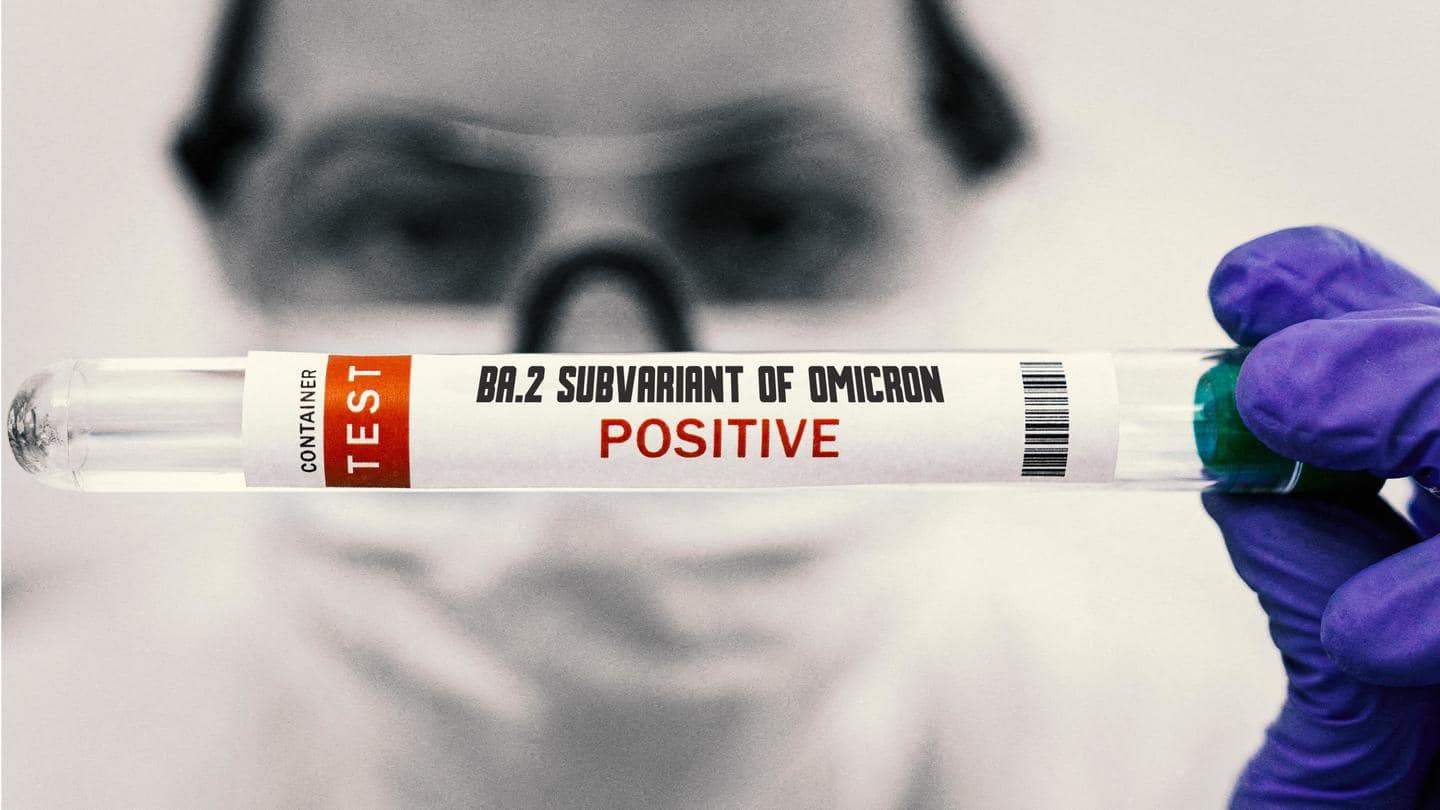
BA.2 strain not more severe than original Omicron: WHO
What's the story
The BA.2 sub-variant of the Omicron variant of coronavirus is not more severe than the original strain, the World Health Organization (WHO) said on Tuesday. However, it maintained that BA.2 is found to be more transmissible than the original one. WHO further said it is closely monitoring the sub-variant, and it would "continue to be considered a variant of concern."
Context
Why does this story matter?
Since its detection in November 2021, Omicron has spread all over the world and become the dominant strain replacing the Delta variant. Meanwhile, one of Omicron's sublineages, BA.2, is now becoming dominant in Denmark and increasing in the United Kingdom. It has also been detected in India and Pakistan. The findings are a relief for countries where cases involving the BA.2 sub-variant are rising.
Details
What did WHO say?
WHO official Maria Van Kerkhove said they studied samples from various countries and didn't find any "difference in the severity of BA.1 compared to BA.2." "So this is a similar level of severity as it relates to the risk of hospitalization. And this is really important because in many countries they've had a substantial amount of circulation, both of BA.1 and BA.2," she added.
Quote
Global circulation of variants declining: WHO
"At a global level, the proportion of reported sequences designated BA.2 has been increasing relative to BA.1 in recent weeks," WHO said. "However, the global circulation of all variants is reportedly declining," it added.
Comparison
What is the difference between BA.2 and BA.1?
The basic difference between BA.2 and BA.1 is their genetic sequence such as differences in amino acid in the spike protein and other proteins. BA.2 is also known to have a growth advantage over BA.1. WHO said studies are going on to understand the reasons for this growth advantage. Notably, BA.1 is currently the most common Omicron sublineage reported.
Studies
Studies ongoing to evaluate the risk of reinfection with BA.2
Several reports have claimed that studies are underway to evaluate the risk of reinfection with BA.2 compared to BA.1. This is significant as many cases of Omicron infecting a person twice have been documented lately. Initial data from population-level reinfection studies suggest that infection with BA.1 provides strong protection against reinfection with BA.2, India Today reported.